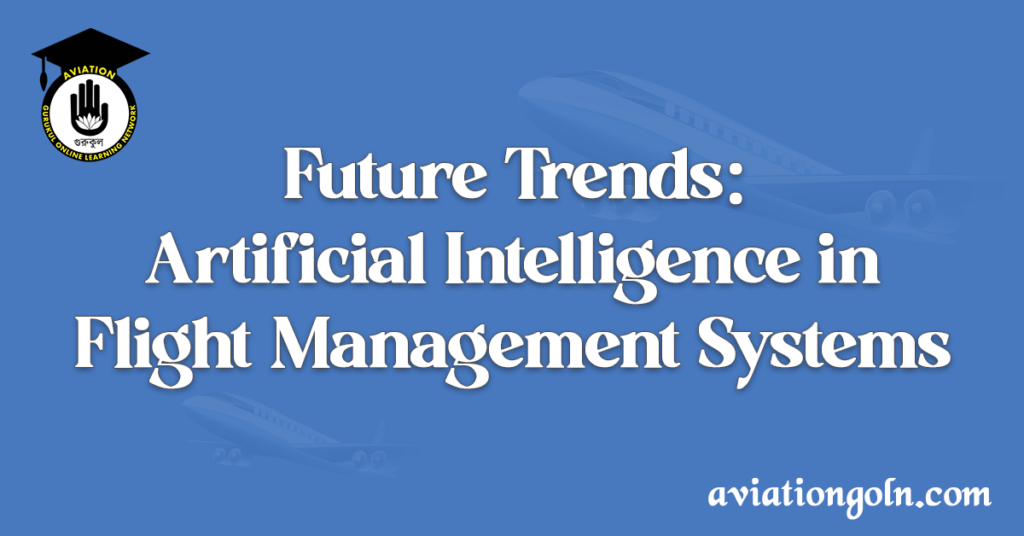The aviation industry has been a bastion of innovation ever since the Wright brothers took their first flight in 1903. Over the past century, we’ve seen remarkable advances, from jet engines to GPS navigation. Today, as the world stands on the cusp of an AI revolution, aviation is once again poised to undergo a transformation. One of the most significant areas of focus is the integration of Artificial Intelligence (AI) into Flight Management Systems (FMS). This article delves into the future trends of AI in FMS, exploring the potential benefits, challenges, and implications for the industry.
1. Understanding the Role of FMS:
Before diving into the intersection of AI and FMS, it’s important to understand the role of FMS in aviation. A Flight Management System is an integrated computer system that automates a wide variety of in-flight tasks. Its primary purpose is to optimize navigation, flight planning, fuel efficiency, and assist pilots in navigating complex airspace systems with ease.
2. The Promise of AI in FMS:
The convergence of FMS and AI promises numerous enhancements:
- Enhanced Decision Making: With AI’s ability to process vast amounts of data swiftly, pilots can receive real-time insights into optimal flight paths, weather conditions, and potential obstacles. This can significantly improve decision-making, especially in challenging situations.
- Predictive Maintenance: AI algorithms can predict when a component is likely to fail based on data patterns, thus ensuring timely maintenance and reducing unplanned downtimes.
- Optimized Flight Paths: AI can analyze historical and real-time data to determine the most efficient routes, optimizing for factors like fuel efficiency, time, and airspace congestion.
- Enhanced Safety Protocols: AI can help identify potential safety issues even before they become critical, ensuring a higher level of safety for both crew and passengers.
3. Future Trends in AI-Powered FMS:
- Real-time Flight Re-routing: With increasing air traffic, the sky is becoming a complex web of aircraft. AI-powered FMS can offer real-time re-routing by constantly assessing flight parameters and other airborne traffic, ensuring optimum paths that save time and fuel.
- Intuitive Voice Assistants: Voice-activated systems, akin to Siri or Alexa, but tailored for aviation needs, can be incorporated into FMS. This will enable pilots to issue voice commands or seek clarifications without manual input, ensuring they remain focused on flying the aircraft.
- Advanced Collision Avoidance: Using AI’s data processing capabilities, future FMS can incorporate advanced collision avoidance systems that analyze the trajectory of multiple aircraft and suggest immediate evasive actions if required.
- Emotion Recognition for Pilots: By integrating emotion recognition technologies, AI can gauge a pilot’s stress or fatigue levels. If the system detects heightened stress or potential cognitive decline, it can suggest breaks or even automate specific tasks to alleviate pilot workload.
4. Challenges in Integrating AI into FMS:
While the potential advantages are vast, the integration of AI into FMS is not devoid of challenges:
- Reliability and Trust: The aviation industry relies heavily on the reliability of systems. AI algorithms, especially those that learn and adapt over time, introduce a degree of uncertainty. Pilots, crew, and air traffic controllers need to trust these systems implicitly, which requires rigorous testing and validation.
- Data Security and Privacy: With AI processing vast amounts of data, concerns about data security and privacy become paramount. Ensuring that flight data remains confidential and secure from potential cyber threats is crucial.
- Regulatory Hurdles: The aviation sector is one of the most heavily regulated industries. Incorporating AI into critical systems like FMS will require a re-evaluation of existing regulations and potentially the introduction of new ones.
- Training and Adaptation: Implementing AI in FMS will necessitate retraining for pilots and flight crew, requiring both time and resources.
5. Ethical Considerations:
Introducing AI into flight management systems also brings forth ethical considerations:
- Accountability: In case of an incident or decision made by the AI, who is held accountable? The airline, the software developer, or the AI itself?
- Transparency: For AI to be trusted, its decision-making process needs to be transparent. However, many advanced AI algorithms function as “black boxes,” making it challenging to decipher the logic behind their decisions.
- Bias and Fairness: AI systems are only as good as the data they are trained on. If there’s bias in the training data, the AI’s decisions can also be biased, potentially leading to unfair or even dangerous outcomes.
6. The Way Forward:
The integration of AI into FMS is inevitable given the potential benefits. However, a measured and methodical approach is required:
- Incremental Implementation: Rather than a complete overhaul, AI features can be introduced incrementally into FMS, allowing for a smoother transition and more thorough testing.
- Collaboration: Stakeholders, including AI developers, aviators, regulators, and the public, should collaborate to ensure the successful and safe integration of AI into flight systems.
- Continuous Learning: As with any technology, continuous learning and adaptation are crucial. Feedback loops should be implemented to ensure that the AI systems are always learning and improving.
Conclusion:
Artificial Intelligence, with its unparalleled data processing capabilities, promises to revolutionize Flight Management Systems, making flights more efficient, safe, and responsive. While the road ahead is fraught with challenges and considerations, with collaboration, innovation, and a commitment to safety, the skies of the future will undoubtedly be smarter and more connected. As we stand at this intersection of AI and aviation, it’s an exciting time to look towards the horizon and envision a future where technology and human expertise combine to create unparalleled flying experiences.
See more:

